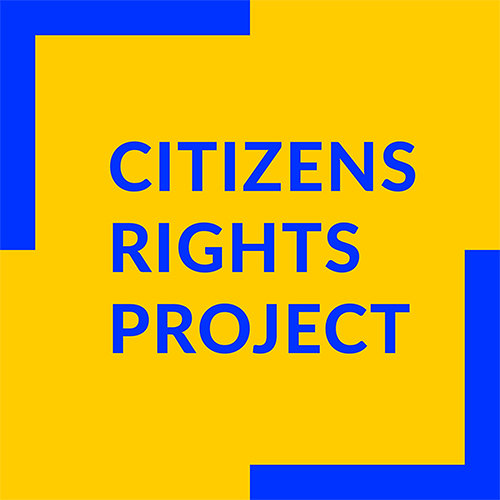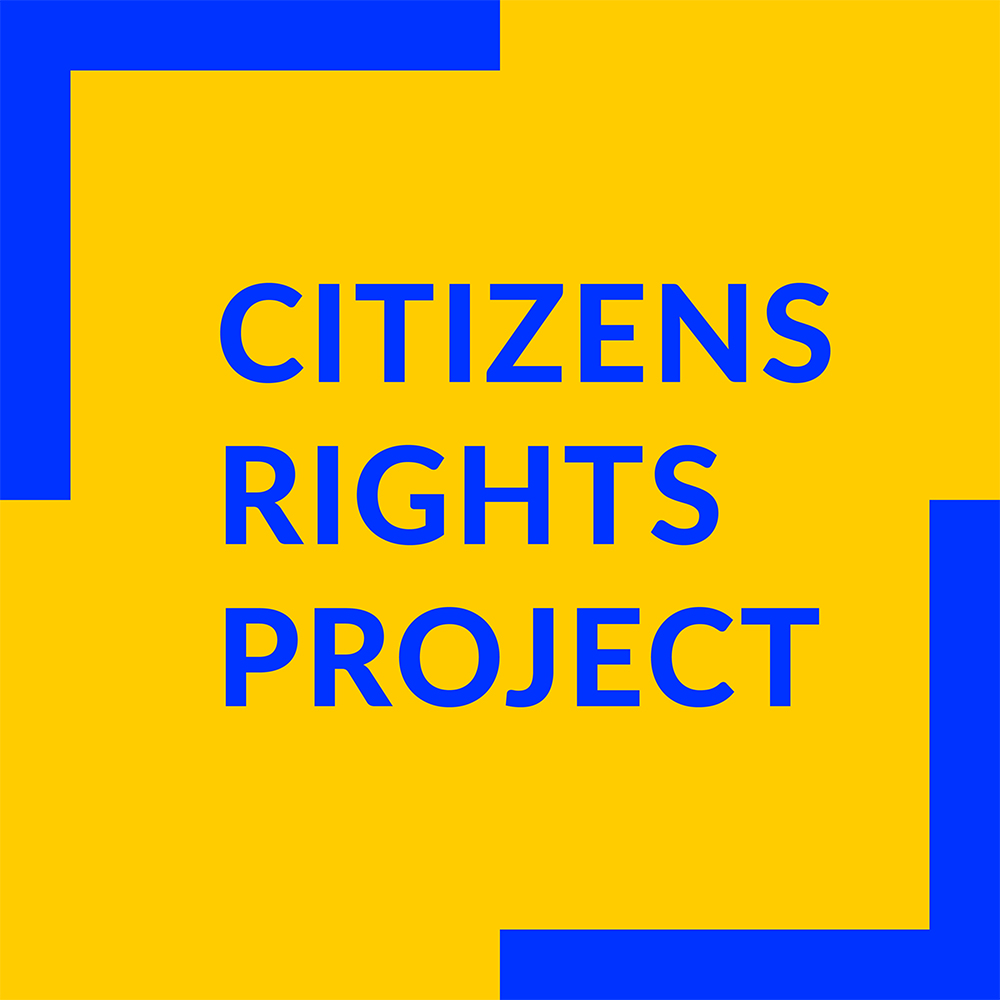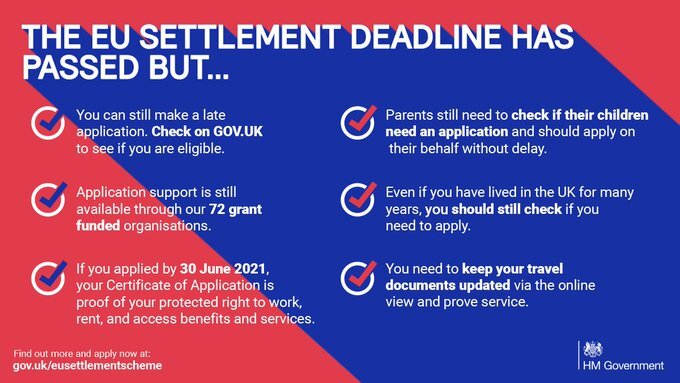You can still apply for settled or pre-settled status!
Those who are eligible to apply to the EU Settlement Scheme can still apply for settled or pre-settled status even after the deadline of 30th June 2021. Late applications, however, are discretionary. This means that applicants must explain and prove why they were unable to apply before the deadline. The Home Office caseworker will then assess if the applicant falls under one of the categories of reasonable grounds to make a late application, and decide whether to accept this application or not.
The non-exhaustive list of reasonable grounds for late application stated in the caseworker guidance includes:
- Children (including children in care or care leavers)
- Physical or mental capacity and/or care or support needs
- Serious medical condition or significant medical treatment
- Victim of modern slavery
- Abusive or controlling relationship or situation
- Other compelling practical or compassionate reasons
- Ceasing to be exempt from immigration control
- Existing limited or indefinite leave to enter or remain
- Document or status under the EEA Regulations
How can I apply after the deadline?
Late applications can still be submitted using the EU Exit: ID Document Check app or online, in the Government website, if the applicant has a valid ID. If not, they have to request a paper application form. There will be an additional question in the late application form asking about the reason for applying late.
What happens if I do not apply?
After 1st July, everyone who resides in the UK without a valid immigration status (in the case of EEA citizens and their family members that would be a status under the EU Settlement Scheme or visa under the new points-based immigration system) is here unlawfully.
As there is no obligation for retrospective checks for existing employees or tenants (in Scotland tenancy checks for private landlords are not conducted), missing the deadline to apply for a status will not necessarily result in a dismissal or eviction. You will, however, face difficulties if you decide to change your job, as at that point you will be asked to prove your right to work in the UK. Also, even if your existing employer or landlord is not obliged to check your status, they can report you to the Home Office if they find out that you are living in the UK unlawfully.
NHS Scotland says that they will not be asking to provide proof of status, but you risk being eventually charged for medical treatments. The DWP and the Home Office will do a check between those departments, and if they notice that you are claiming benefits but not yet applied to the EU Settlement Scheme, they will give you a notice first, but if you still do not apply, they will suspend your payments. If you have not applied and want to start claiming a new benefit, you will be automatically refused.
The (in)famous 28-days rule.
If a UK authority finds that you have missed the EU Settlement Scheme deadline, you will be given a 28-days notice to apply. This will be recorded by the Home Office and if you do not submit an application within that time, you might be removed from the UK.
This 28-days rule gained popularity in social media just before the 30th June deadline when many people mistakenly assumed that this was an extension. It is important to highlight that this will still be considered a late application and thus the same rules on late applications mentioned above apply. The Home Office claims that they will take a generous approach to those applying late, but at least in theory there is always a chance that they will not find your reasons for applying late genuine and will refuse to consider your application.
What happens if I apply late and now I am waiting for a decision?
[Update: On 6th August the Home Office announced temporary protection for those who submitted late application to the EU Settlement Scheme.
Those people will be able to prove their right to work by generating the Share Code using their digital Certificate of Application or by Employer Checking Service. You can find more information about the right to work checks in our latest post.
We have identified that some of the Home Office correspondence confirming receipt of the applications has not been updated yet and has incorrect wording, stating that employers should not employ people who apply late and are waiting for a decision. This contradicts the latest changes in the Employer’s Guide.]
If you feel that you were treated in a discriminatory way or that your rights were violated, you can report a complaint to the Independent Monitoring Authority for the Citizens’ Rights Agreements.
Time is not your friend: submit your application as soon as possible
Although those who apply after the deadline are in a more vulnerable position in comparison to those who applied on time, their situation will be much better than those who have not applied at all. Do not forget, however, that you will have to explain why you are applying late in order to have your application accepted. Even though the Home Office should be generous when looking at late applications, the longer you wait, the more difficult it will be to justify your delay.
Free support in applying to the EU Settlement Scheme is still available. You can contact us or your local support organisation.
For more in-depth information about late applications to the EU Settlement Scheme, visit Free Movement’s website here and here.
This article has been updated on 24th August 2021.


